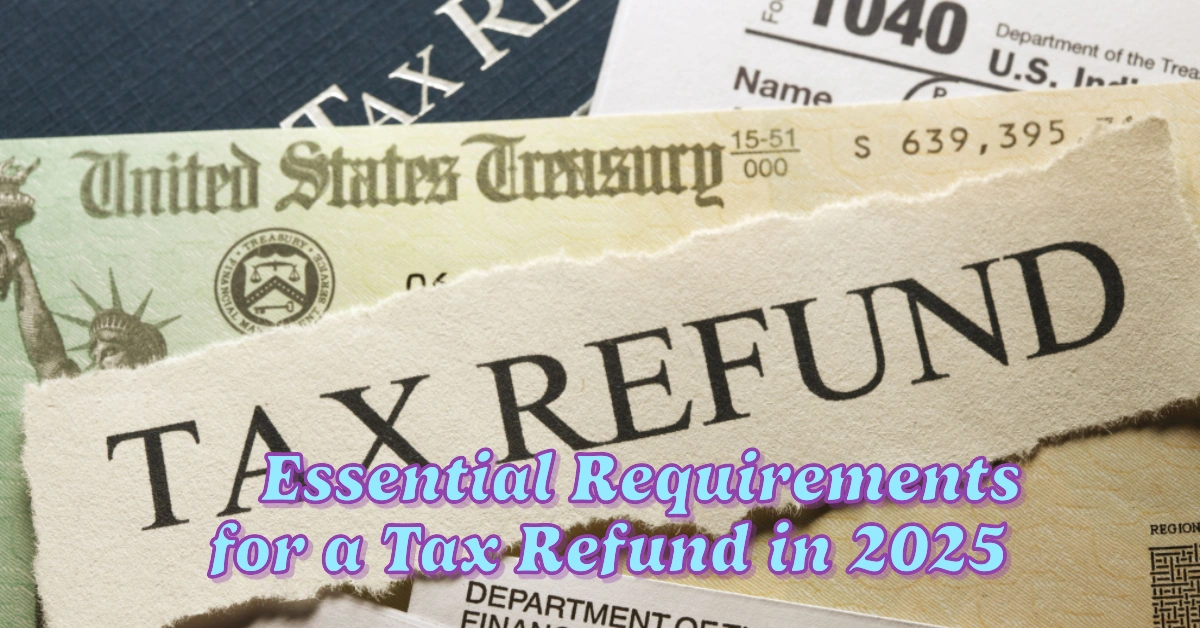IRS Tax Refund 2025: Key Factors That Could Affect When and How You Receive Your Payment
The IRS Tax Refund season for 2025 has officially begun, and for many U.S. citizens, that means they’re either eagerly awaiting their tax refund or already seeing the funds hit their accounts. However, not all tax filers will receive their IRS Tax Refund at the same time. There are several key factors that can influence when your payment arrives, and some taxpayers may not receive it at all.
Table of Contents
If you’ve filed your tax return but have yet to receive your refund, don’t worry—there are a few reasons this could be happening. Some Americans are still in the process of filing, while others may be facing delays due to issues with their tax returns or eligibility. Here’s a breakdown of the factors that could determine when and how you’ll receive your IRS Tax Refund for 2025.
What You Need to Know About IRS Tax Refunds in 2025
As we’re deep into the 2025 Tax Season, many taxpayers have already received their IRS Tax Refunds, with some opting for direct deposits into their bank accounts. However, if you’re still waiting, the good news is that your Tax Refund could be on its way soon—pending eligibility and filing status. The IRS typically processes refunds for those who have filed their returns correctly and on time, but there are some things that could delay your payment.
Why Some Taxpayers Haven’t Received Their Refund Yet
While a significant number of U.S. citizens have already received their IRS Tax Refund, others may be waiting due to one of the following reasons:
- Tax Return Not Submitted: Some individuals may not have filed their Tax Return yet. If you haven’t submitted it, your IRS Tax Refund won’t be processed. Be sure to file as soon as possible to avoid delays.
- Incorrect or Missing Documentation: Filing your Tax Return correctly is crucial. If there are errors or missing information on your form, the IRS may need additional time to process your refund.
- Outstanding Taxes from Previous Years: If you owe taxes from previous years, the IRS may apply your refund to those past due amounts, which could delay your 2025 refund.
- IRS Processing Delays: The IRS may need extra time to review your return if there are discrepancies or if it’s flagged for additional checks.
- Physical Tax Return Submission: Submitting your Tax Return on paper instead of electronically can significantly slow down the process, as manual processing takes longer.
Key Requirements for Receiving Your IRS Tax Refund in 2025
To be eligible for a 2025 Tax Refund from the IRS, there are a few essential requirements:
- File Your Tax Return: Make sure you submit your Tax Return on time. Tax season for 2025 is currently open, and the final deadline for submission is April 15th, 2025. Don’t miss the cut-off date to avoid penalties or delays.
- No Outstanding Tax Liabilities: Ensure that you don’t owe taxes from previous years, as this will affect your refund eligibility. If you do owe back taxes, the IRS may use your refund to cover those debts.
- Accurate Documentation: Double-check your Tax Return for accuracy before submission. Incomplete or incorrect documentation can lead to delays in processing.
If you’ve already filed your return and are eligible for a refund, it’s just a matter of waiting a few weeks. If you’re wondering where your refund stands, use the IRS “Where’s My Refund?” tool to track your status.
SNAP Payments of $292 Now Available to Eligible Americans in All Participating States
List of SNAP Florida Beneficiaries Scheduled to Receive Payments This Week February 2025
3 Key Benefit Checks for February 2025 Payment Amounts and Dates
IRS Tax Refund 2025 Eligible Americans Could Receive Stimulus Payments of Up to $3,600
When Does the IRS Tax Season 2025 End?
Tax season for 2025 is officially open, and taxpayers have until April 15th, 2025 to submit their Tax Returns. If you file early, you may receive your refund sooner, but the key to faster processing is submitting your documents electronically. Paper submissions can delay the process, so it’s highly recommended to file online if possible.
Although the amount of your IRS Tax Refund will vary depending on individual circumstances such as income, deductions, and credits, it’s important to understand that each taxpayer’s situation is unique. It’s impossible to determine a precise refund amount until the IRS has processed all returns.
Conclusion: Stay on Top of Your 2025 Tax Refund
As we move through the 2025 Tax Season, keep in mind that timely filing and accuracy are critical to receiving your Tax Refund quickly. Be sure to file your return early, double-check all forms, and ensure there are no outstanding taxes that could delay your payment.
If you haven’t received your Tax Refund yet, don’t panic—it could be on its way. Use the IRS online tools to track your refund and get more information. Remember, each person’s refund timeline will vary, but with the right steps, you can ensure your refund arrives as soon as possible.
